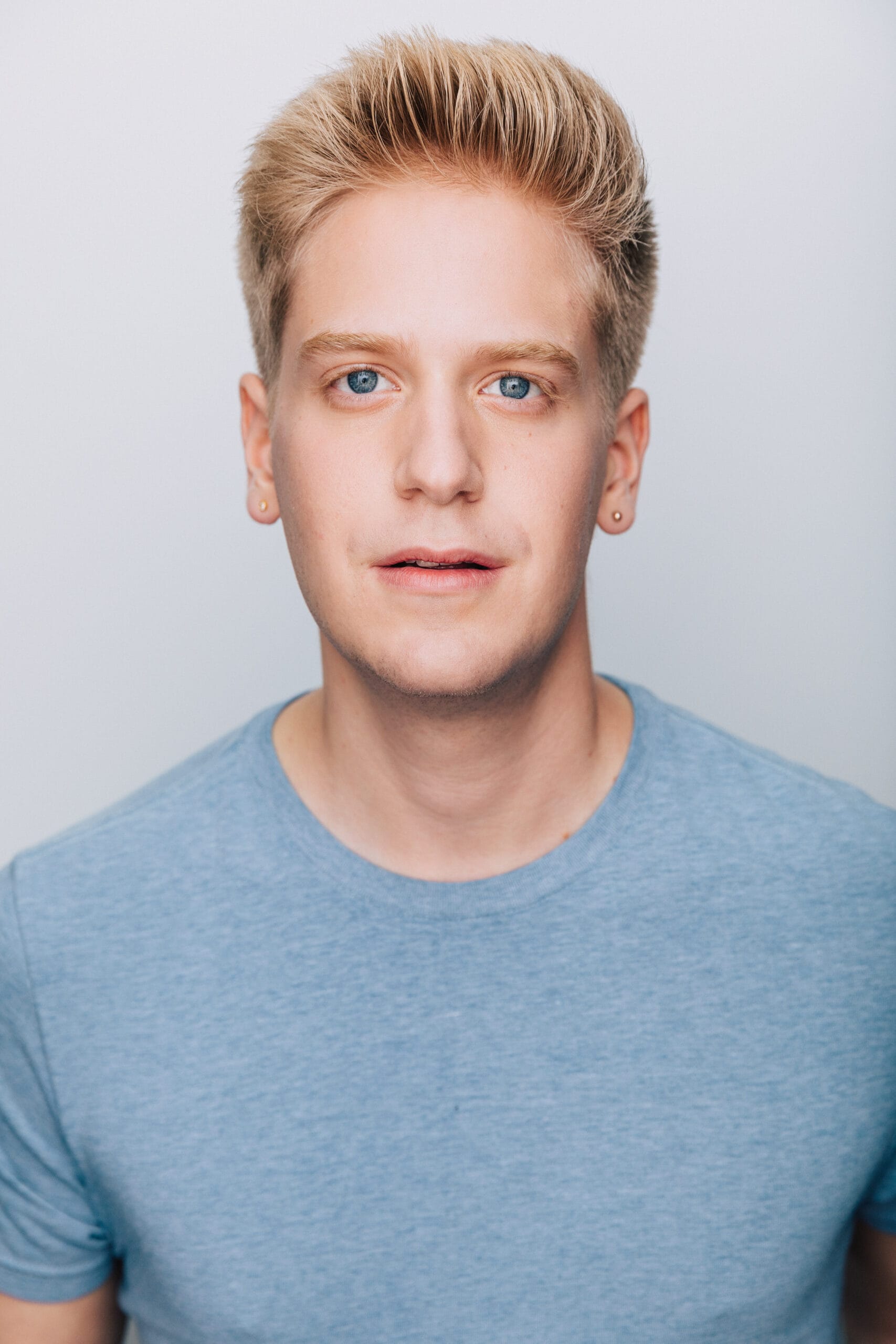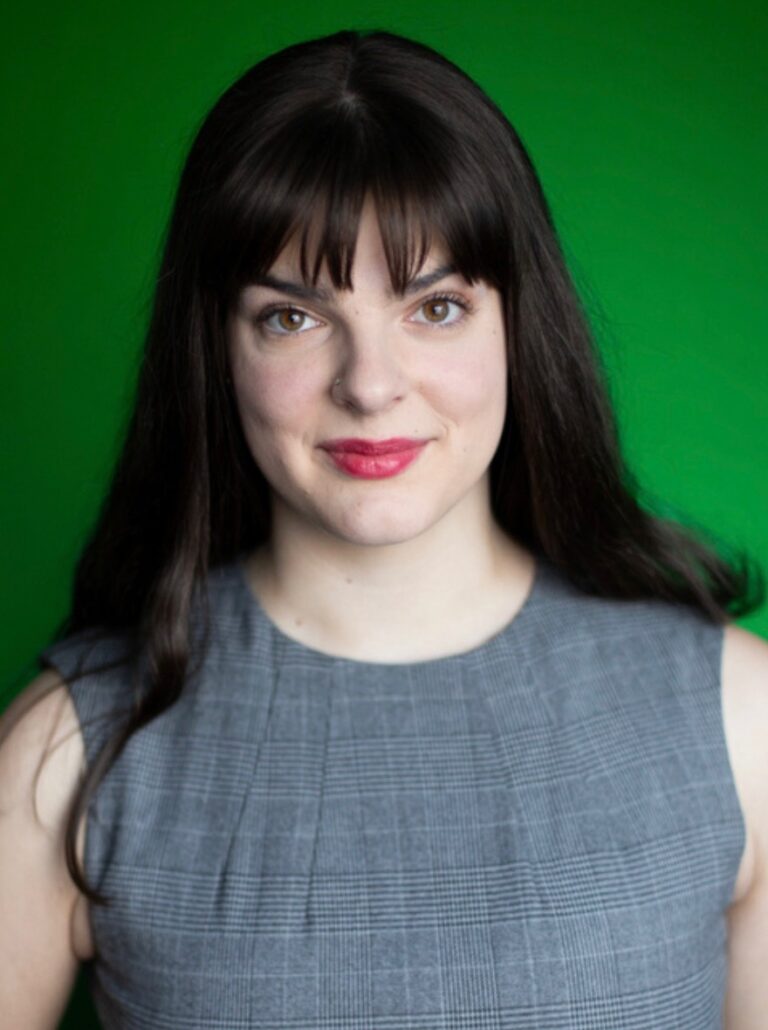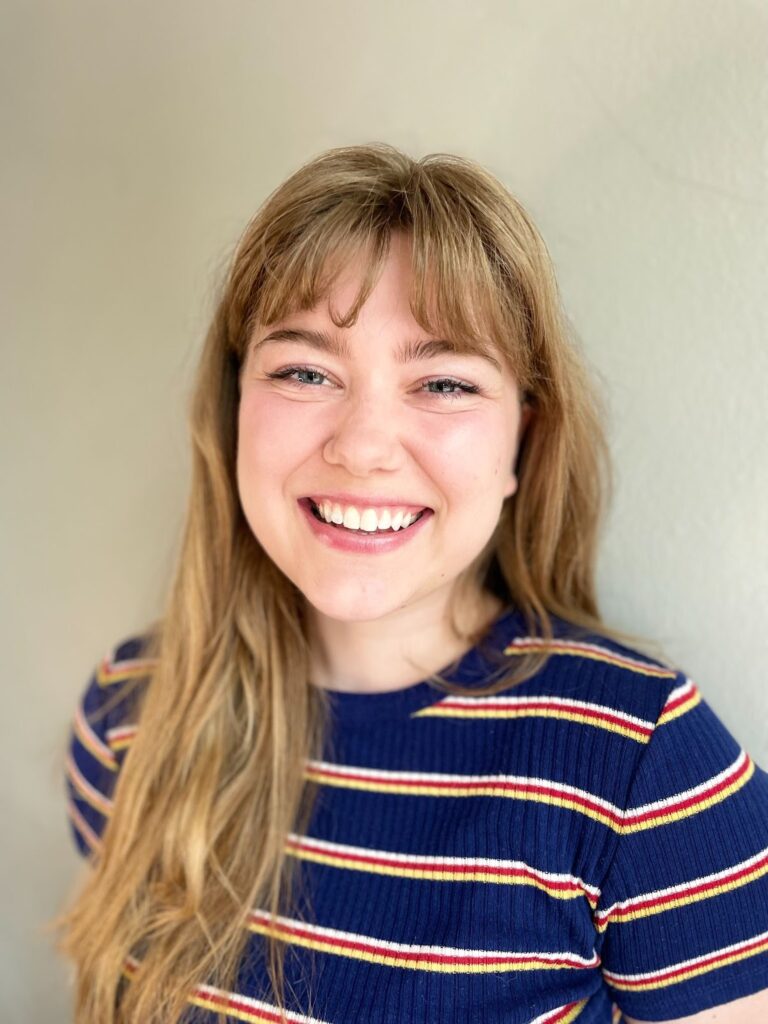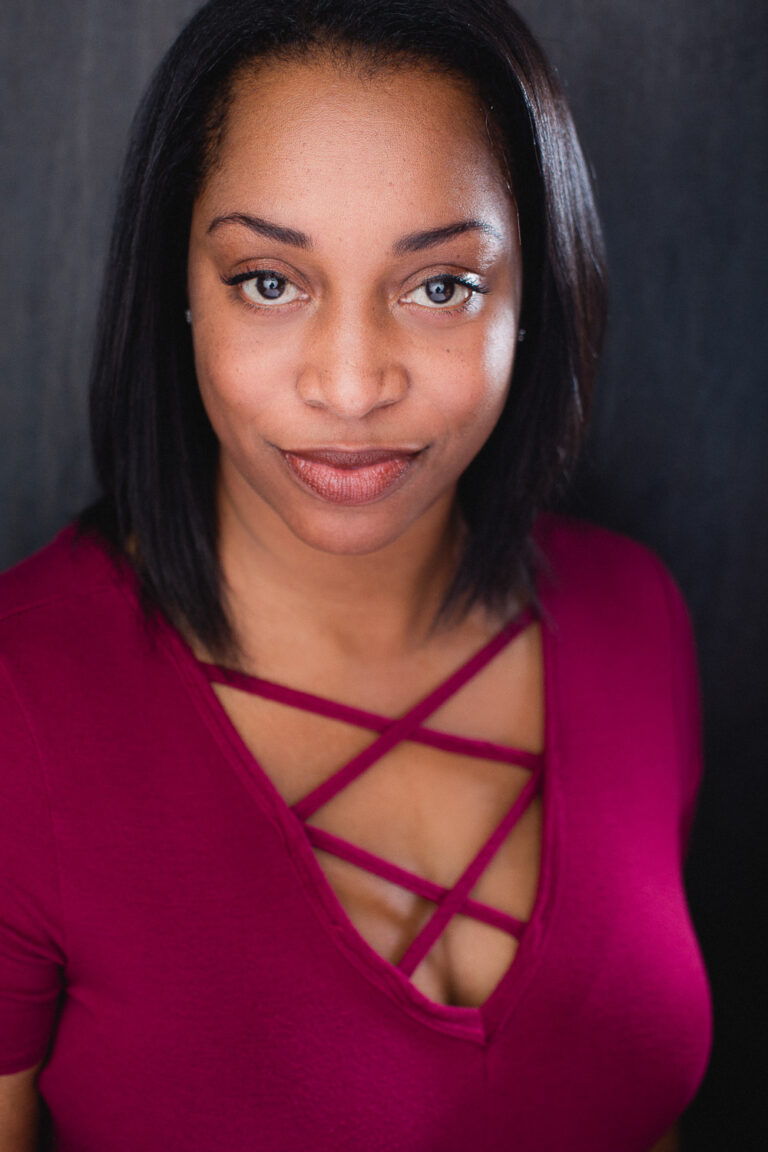

Interview With Noah Silverman (Christopher – The Curious Incident of the Dog in the Night-Time)
Written by Micah C. Beachy
Noah Silverman (Christopher – The Curious Incident of the Dog in the Night-Time) is thrilled to be at West Virginia Public Theatre this summer! He graduated in May from the Penn State BFA Musical Theatre program. Noah is from Tarrytown, New York. His Penn State credits include The Curious Incident… (Christopher), Spamalot (Patsy), and Nostalgia Night (Bryce). Noah feels so thankful to be a part of this company. He is a graduate of Walnut Hill School for the Arts and is grateful for the support of his friends.
Interviewer: Good morning Noah!! Thank you for taking the time to chat with me this morning! Tell us a little bit about yourself, how you got started in the industry and what your path has looked like.
Noah: Well, I actually graduated just before I arrived. I graduated on May 7 from Penn State. I got a BFA in Musical Theatre. It’s really exciting because I was able to, like a week after graduating, be able to come here and work, which is super exciting. Super exciting.
I’ve been doing theatre since I was little, since I was a very little kid. But in terms of industry and my career, this is the beginning of it, right?
I started doing theater when I was four years old. So it was always what I really wanted to do, and I was always super passionate about it. I ended up going to an arts boarding school, Walnut Hill, which is right outside of Boston. If I didn’t go there, I think I still would have been doing theatre in some capacity, but I don’t know if I would have ended up in a conservatory-style program, like in a BFA program, but I love it so much. I’ve always loved it since I was a little kid.
Interviewer: Totally amazing – a conservatory-style must have been so immersive too. How did you find yourself working with West Virginia Public Theatre? How did you hear about us?
Noah: Two of my good friends showed me the audition notice. I did the same show back in October at Penn State and I played Christopher. A couple of months later, my friends sent me the Playbill ad for Christopher, and they were like, “you should send in a video”.
I remember they both sent me the ad the same day, and I was up doing a bunch of work and sending my self-tapes for random things and for classes and stuff like that. I was like, okay, yeah, I’ll just do that. I sent in a random self-tape from my junior year of college from when I auditioned the first time around. WVPT reached out to me a couple of weeks later to come in for callbacks or send in a callback video. I went through, like, three or four rounds of callbacks, and then I got it. I had never heard of West Virginia Public Theatre and I had never been to the state, so I was really excited to experience both for the first time and it’s been a really wonderful experience.
Interviewer: I love to hear that, especially as someone who is from West Virginia. Please tell everyone how wonderful we are! So what has working on this project been like?
Noah: It’s a really difficult show, but I think with difficult shows comes, like, a pretty awesome reward, I would hope. I don’t think anyone would say this is an easy show. Just because of the subject matter, it is really difficult. You have to be thoughtful in the way you navigate it and compassionate. I love the show. I think it’s a really extraordinary story, and I think that it has an incredible power to be able to challenge the way people think, allow them to think in different ways, and see the world from a whole different point of view.
I love working on this show because I think it’s super creative, and I’ve also just loved the team that’s working on it. I was on the phone with my dad last night, literally, and I was like, “Dad, I have never in my life worked with such an incredible, compassionate, kind cast”. I know I’m only like, what, 22? But still, there’s no ego in the room. Everyone is so flexible. Everyone is so willing to do anything that they can to help tell the story in the best way we can together.
It feels like such an incredible community, and no one is alone in telling the story. We are all doing it together, and everyone is just, like, so wonderful. So I feel really grateful.
Interviewer: That’s phenomenal. You mentioned you played Chrishoper before, how would you say this time has differed from the last time? Have you found nuances that maybe you didn’t see last time? Or how is this Christopher different from your first Christopher?
Noah: I remember when I was going through the audition process and talking to Jerry because I told him I’ve done this role before. I was very transparent that I wanted to do it completely differently. I don’t have any interest in doing it in the same way.
The first time I did this show, I was so terrified. Genuinely, I was just so scared because it’s a difficult show and it’s a difficult role. I put a lot of pressure on myself. Because of that, I didn’t really allow myself to freely engage in the material. I felt so anxious. That didn’t help me in my process. This time around, I am approaching it differently, and I want to do it differently. Every note that the team gives me, I’m eager to try because I think that with a role that’s challenging, I want to make sure that even if I do it another time, I want to continue to grow and improve and change. I mean, it’s also our job as actors. The goal is to improve and challenge yourself and create something new.
Interviewer: Definitely – that’s so exciting to explore those discoveries, too. What are some of the show’s challenges and what are some of your characters’ challenges? Those might go hand in hand, they might be different.
Noah: The show is really cool because the ensemble is truly working together to help the audience try and understand someone else’s mind, which is so cool. That is one of the blessings of the show – it truly brings you inside of someone else’s mind and encourages you to think in a completely different way. It’s telling this really thoughtful, deep story while also being aware of the story and trying to help the audience navigate this complex story within another person’s brain.
It’s a challenging show for me because Christopher doesn’t leave the stage, which is super exciting because I’ve never done a role like that before this. So it’s like “how do I make this a sustainable show that I can do, and put my all in, have it come from the heart, and be thoughtful, compassionate, and empathetic?”. I am doing it with all the love in the world, all the research, and all of the things about me that I understand and that I don’t understand, and working to make it a sustainable performance that I can do multiple times.
It’s been important for me in this journey to recognize the aspects of Christopher that I share with him and the aspects that I don’t share with him. I consider myself neurodiverse. I am not on the spectrum, but I have learning disabilities and things that have impacted the way I think and the way I navigate the world. For example, I have ADHD and OCD and things that I think Christopher could also have. They’ve had pretty major impacts in the way I navigate the world, the way I think through the world, and the way I go through the world. I would not have auditioned for this if I didn’t feel that I shared something with Christopher. I also think in that same regard, I need to acknowledge the things that I don’t relate to about Christopher. I’m pretty sure Mark Haddon, who wrote the novel, based the character on Temple Grandin, who I’ve done a ton of research on and who is a really extraordinary and awesome woman. I’ve done a ton of research, and we have amazing experts working on the show like Dr. Krestin Radonovich.
I want to make sure I’m bringing my own personal life experience, doing my research, and putting them together. That’s been an exciting process for me. But I think something that you need to look for when you’re doing a role like this is what you share with the character. And what do you not share? I think things have impacted my life in pretty major ways. I feel connected to the story, and want to tell the story, but I know I understand the character in some ways others might not because I have a lot of similarities to Christopher. There are also plenty of ways we are different. Recognizing that has definitely been an important part of playing this role with the most empathy I possibly can and doing the best work I can.
Interviewer: I think it’s important for our audience to know that you genuinely share some of the traits with Christopher but are taking the initiative to understand him on a deeper level, too, through experts and research. Thank you so much for sharing that with us, Noah. There’s a lot of movement in this show, right? How has movement helped with this role in this production?
Noah: Tom O’Connor is our movement director, and he is truly unbelievable. I’ve never worked with anyone like him, and I am so thankful that he is in my life and that I have been able to work with him. Movement is a really exciting part of the story because the physicalization of each character and of different objects within this show is important, and cool, and builds a sense of community. It truly helps tell the story on a different level because, with movement, you get specificity. With a story like this, the goal is to be as specific as possible and to be clear about the story we’re trying to communicate. Through movement, we’re able to make the story we’re trying to create very specifically.
Interviewer: Perfect. What would you like audiences to take away from this show?
Noah: Empathy and compassion. One of my goals in doing theater, and I think a lot of people’s goals in doing theater, is to challenge the way people think and help create change through theater and through storytelling. There is no show that’s better able to do that than this show because it truly helps someone understand a little bit about someone’s else’s mind, and how that might be different from their own. I hope people come away from the show asking themselves questions, and challenging themselves, and challenging the way they see the world. I hope the show creates empathy – a sense of compassion for everyone that sees the show. You never know what other people are going through in the world. I hope people come away from the show thinking about how they navigate the world and interact with people, and how they can be the most empathetic version of themselves. I hope that’s a big takeaway.
Interviewer: I hope so too. Thank you so much for taking the time to chat with us, Noah! Break a leg!
Noah: Thank you so much, Micah! Great getting to speak with you!



